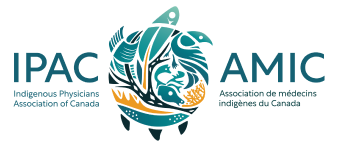Impact Story
Meaningful stories written by members that demonstrate how IPAC was able to make a change with the support of our community.
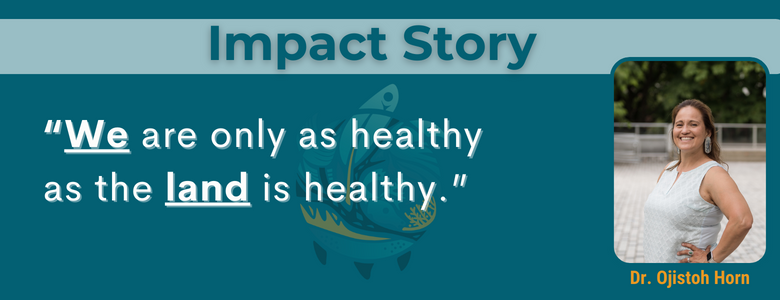
Dr. Ojistoh Horn: IPAC Physician Director
When I was young, I had a poster on my wall featuring a young Indian woman wearing a blanket, standing on a rock beside a river, with the inscription: “Only when the last tree has died, the last river has been poisoned, and the last fish has been caught, will we realize that money cannot be eaten.”
For as long as I can remember, I have always had an environmentally conscious focus. I come from a long line of people who fought for the land against the industrial waves that have moved over our communities. Their stories are told by my mother, who is an incredible storyteller. My earliest memory is running through a row of plants in a garden. I must have been very small, but I do remember tomatoes above my head. My mom apparently had an amazing garden. We didn’t have a lot of money growing up, and all my clothes were second-hand. I remember it would take a few months for my feet to re-imprint the second-hand shoes and boots that I would be wearing. My mother used to hold ceremonies in our home. We spent a lot of time outdoors, camping and canoeing during the summer. I learned how to sail. We would collect porcupine quills to do beadwork. Two incredible memories of my youth are running through the woods during a cross-country running race, feeling like a deer, and swimming so efficiently that I felt like a fish. When I was older, I spent a few summers up north planting trees. Also, for the 16 years that I went to school to become a doctor – that being undergrad, graduate school, medical school, residency, and then fellowship – I always used paper collected from the recycling bin. I think that I have always been in awe of the mind inside nature. I have always ‘reused, reduced, and recycled.’
I have always been an advocate for the health of our environment, our mother. I didn’t have words for this advocacy until relatively recently.
I grew up in a traditional-minded way. This means that I have thought hard about Sky Woman and her story. I perform our Thanksgiving address regularly – acknowledging our responsibility to be stewards of this earth and to keep the space for all parts of creation to carry out their original instructions. In our great peace, we describe the importance of looking into the minds of everybody and finding all the information that makes up the best truth, and then, with that truth, we arrive at a consensus and make decisions. Only by having the truth can you truly advocate for those who have no voice. That includes all parts of nature, the mind inside nature, and the faces yet to come, which are our future. We have many wampum, importantly, the dish with one spoon, which describes how we are in a global commons. It means that we can’t take more than we need or hoard things because it will disrupt the great balance. We have our clan systems, which are a system where the thoughts, experiences, and voices are brought forward. We have our ceremonies that affirm our relationships with ourselves, each other, our families, our communities, our ancestors, our non-human relatives, and the faces that are yet unborn. We have ceremonies that acknowledge our passing through the cycles of life, and we have ceremonies that acknowledge the passing through of the cycles of the year. Good relationships are the essence of being well. Not just wellness but well-being.
I feel that we have been unable to steward the earth effectively. We have not been able to carry out our original instructions. We tried. But because climate disruption and environmental degradation happened on our watch, we collectively are experiencing moral injury. We are only as healthy as the land is healthy.
I am part of a grassroots group of people in my community of Akwesasne who are trying to protect the land, waters, and air. We meet regularly. We have restarted a newspaper that used to exist in the eighties. We are reaching out to our community to describe the stresses that corporate society has had on our health and the health of our land. This group is what makes me feel that I am legitimate. So, when I speak with other organizations about issues at home, I feel that I am speaking with authority. I am a board member of the Canadian Association of Physicians for the Environment, the Indigenous Physicians Association of Canada, and the Federation of Medical Women of Canada. All three NGOs advocate for three groups with similar vulnerabilities: women and girls, the land, and indigenous peoples. I am also a member of the Indigenous Health Committee of the College of Family Physicians of Canada, the Indigenous Guiding Circle of the Canadian Medical Association, and the CanMeds Planetary Health committee of the Royal College of Physicians and Surgeons of Canada. It can be overwhelming to be so involved. But I feel that my entire life has been moving towards this moment in time where I am able to speak to many parts of society about the health of our people, our lands where we are indigenous to, and our Mother, the Earth, or Iethinistenha Ohontsa.
Being a traditional-minded person, a mother, and a family physician in my community has helped me to find the words to tell our stories in a responsible and strong way. Right now, we are discussing forming an Indigenous Caucus at the Canadian Association of Physicians for the Environment (CAPE). Specifically, we are aiming to create a platform that extends directly from the grassroots community people, both urban and non-urban, directly to the membership of CAPE. I would ask all family physicians, indigenous and non-Indigenous, to become involved in CAPE. There is so much work to do! And we need to learn from each other. There are many ways that our ability to steward the land is being affected, and our people, lands, waters, air, and ice are falling through the cracks. We need to hold the governments accountable to their laws, and we need to amplify the voices of those healers in our communities who are working hard to protect our Mother for the Faces Yet to Come.
Written by Dr. Ojistoh Horn, April 3, 2024
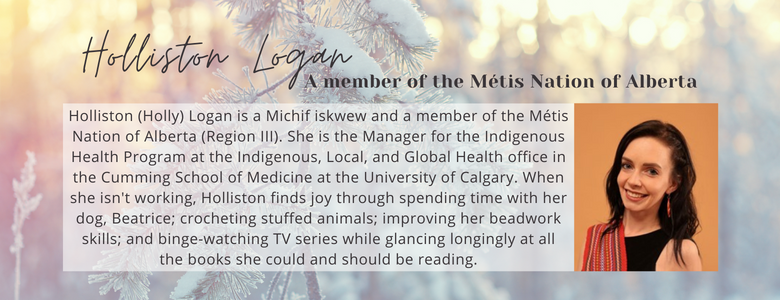
Holliston Logan: Indigenous Associate Member
Within my work, I am inspired by seeing the growth and success of those around me, and in particular, those I support directly through the roles I’ve held in the Indigenous Health Program at the Cumming School of Medicine, University of Calgary. In 2018, a Blackfoot Elder gifted me with the name Mátoomaki, which means “First Woman” and was explained to me through story as someone who is there to guide and support others on their journeys. I am deeply honoured to have been gifted with this name and try to live up to the roles and responsibilities of this name by providing unconditional support and love to those around me as they navigate the complexities of post-secondary education, and life in general. Through my work, I strive to promote inclusion of Indigenous people and knowledge, ensuring we are working toward dismantling barriers and bias within the institution. One of the key ways I try to create this impact is through creating a warm and welcoming environment in our office and team for Indigenous students, staff, faculty, and community. Space to belong, identify with others, seek support from those who understand, and share lived experience or worldviews, is a crucial component to support and community. The Indigenous Health Program strives to create this space, and to build community at the Foothills campus for the University of Calgary.
I was first introduced to IPAC when I began my role as the Indigenous Health Program Coordinator in September 2021. Since joining IPAC as an Indigenous Associate member, I have been able to build meaningful relationships with Indigenous colleagues, students, and community members across the country with similar interests, passions, careers, and worldviews. IPAC has helped me to expand my community and relationships and allowed me the opportunity to build relationships with others who understand and experience similar challenges and success as they navigate post-secondary institutes as an Indigenous individual. IPAC is here to support First Nations, Métis, and Inuit individuals wishing to become medical doctors, those already in training or practice, and to promote the work of its members in their many capacities. They are here to help you succeed, connect you with opportunities, and offer the opportunity to engage with community. You don’t have to go through your medical education journey alone – IPAC is there to support you and connect you with others!
Navigating medical education as an Indigenous learner can often be a challenging and frustrating experience. While there are many individuals within your post-secondary institute ready and waiting to support you, there are even more folks nationally who want to see you succeed. I have witnessed the positive impact IPAC’s Mentorship Circle has afforded learners seeking guidance on their medical education journey and career. I have been able to witness first-hand the power and impact of the knowledge, support, and guidance that mentors through the IPAC Mentorship Circle have provided to Indigenous Medical Students at UCalgary, and the profound influence that mentorship has on students’ well-being, perseverance, and spirit.
As Manager for the Indigenous Health Program, I’d like to remind Indigenous learners, residents, physicians, staff, and faculty that we are here to support them! I encourage folks to engage and build relationships with their respective post-secondary institutions’ Indigenous health teams. As well, to students considering becoming an IPAC member, I would enthusiastically encourage you to join! There is nothing to be lost and everything to be gained by expanding your network, seeking out additional opportunities for mentorship and support, and building new relationships. Be sure to inquire with your University as to whether membership costs are supported! At the University of Calgary, the Indigenous Health Program covers IPAC membership costs for Indigenous learners and residents.
Written by Holliston Logan, January 11, 2023
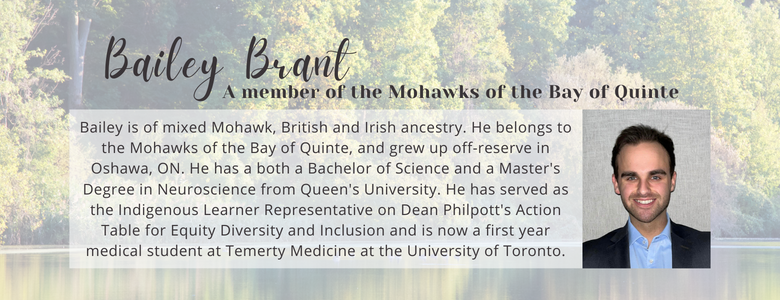
Bailey Brant: A PRIDoC Student Grant Recipient
I am a member of the Mohawks of the Bay of Quinte and now attend the University of Toronto’s Medicine Program. As I am just beginning my medical education at the U of T, the experience of attending PRIDoC 2022 was unparalleled in its ability to make me feel welcomed into the profession of medicine as an Indigenous person.
I first learned about this event through my mentor and past IPAC President, Dr. Nel Wieman, in the Spring of 2022. Being an Indigenous student, I was nervous and knew from my undergraduate and graduate studies already that colonial and traditionally western spaces can make me feel uncomfortable. However, throughout the various activities, like Cultural Sharing Night, I was able to feel my culture and, by extension, myself being accepted into the incredible family that is the Pacific Region Indigenous Physicians collective.
There were many firsts for me on this trip; It was my first opportunity to travel out of province and to the West Coast, it was the first time I’d ever swam in the Pacific Ocean, and the first time that I felt like my journey into medicine, with the goal of working with Indigenous peoples, was married with the journeys of so many like-minded, open, and caring healthcare professionals like me.
My favourite experience of the trip, aside from meeting and connecting with all the wonderful delegates, was our trip to Lu’ma Medical Center with Dr. Mike Dumont. In my medical applications, I wrote about a dream of building a practice centered around a two-eyed seeing approach. My dream was to build a space where Indigenous patients could reconnect with their culture and how that can be an integral part of their healing journey. To have the opportunity to see this happening in real life for patients at Lu’ma was so special to me. It made those dreams that I wrote about only a few short months before become even more tangible.
With all that said, I cannot express enough how grateful and honoured I was to receive this Student Grant and to have these experiences that I will undoubtedly treasure for a lifetime. It is my wish that Indigenous medical learners like myself can have similar opportunities in the future to feel like they have space and place in this field, to feel like they have agency and most importantly, to know that they are joined by so many other Indigenous practitioners on their journey.
Written by Bailey Brant, October 12, 2022
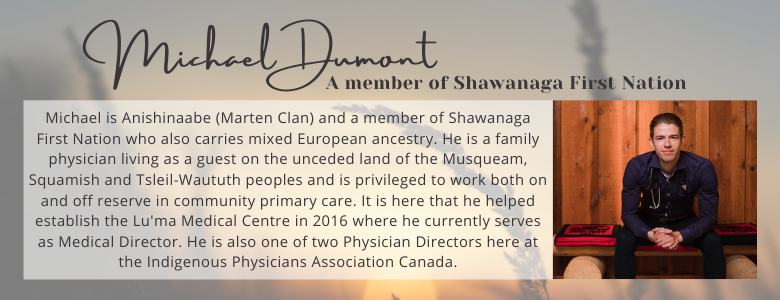
Stepping Into My Role: A humble beginning with the Indigenous Physicians Association of Canada
My first connection with IPAC was as a medical student member, and I was part of “Our Stories: How we Became Doctors”, an IPAC publication on role models in medicine in 2012. IPAC has always represented something exciting to me – community and mentorship. I was fortunate that several of my mentors served on the IPAC board over the years, and they kept drawing me in to the inspiring work that the organization is involved in. At the 2016 IPAC Gathering in Vancouver, when I was just two years out of residency, Dr. Evan Adams nominated me to run for the board as a physician director, a call that both moved me and terrified me. I suffered from a degree of imposter syndrome at that time, struggling with internal doubts and questions about myself. Was I ready for this? Was I experienced enough? Was I knowledgeable enough? Was I Native enough? I (very respectfully but somewhat sheepishly) declined Evan’s nomination at the election, but pledged to run at some point in the future.
That same summer, I helped establish and now serve as medical director for Lu’ma Medical Centre, an Indigenous primary care clinic located in unceded Musqueam, Squamish and Tsleil-Waututh territory (Vancouver). Our centre integrates traditional Indigenous and Western medical approaches in a team-based practice model including Elders, traditional healers, counselors, social workers, nurses and physicians. The opportunity to bring Lu’ma Medical to life was literally a dream realized for me. I’m gratified to see our centre making a difference in the lives of our patients and their families, and also influencing healthcare system change on a regional and provincial level. We have a large teaching role as one of the home sites for the Indigenous Family Medicine residency program at UBC.
A few years later, I happened to bump into Dr. Nel Wieman and Melanie Osmack at the ferry line-up from Vancouver to Victoria, on our way to a conference. We shared the ferry ride over, lost ourselves in conversation and laughter, and I knew that it was time to get more involved with IPAC. Soon after that conference, Melanie invited me to join the new Champions Committee, focused on lifting up and celebrating our Indigenous physician colleagues through award nominations and recognitions of achievement. The work on this committee has been exhilarating and deeply rewarding – winning an award yourself is one thing, but shining a light on someone you admire and helping them win an award is entirely more gratifying. I believe we collectively benefit from seeing our fellow Indigenous doctors recognized for their achievements – celebrating one of us is truly celebrating all of us – it raises the floor that we all stand on.
Last summer, I received the call to run for the IPAC board in the 2021 elections. Evan again put my name forward – giving me the opportunity to make good on my earlier promise. I felt deeply humbled by that validation – that recognition from someone I look up to that I was ready for this work. My Elders have taught me to listen when we are called upon to do something, especially in service of others – in that sense, I had to say yes this time. I also felt that this was the right time to step up; I felt a stronger confidence in my identity, a more keen awareness of my strengths and weaknesses, and a readiness to take on this leadership role.
To those who are considering a run for one of the committees or a position on the board, I highly recommend it. My first six months on the IPAC Board have been challenging, stimulating and very enjoyable. We’ve been hard at work preparing for PRIDoC, responding to the concurrent public health emergencies of the COVID-19 pandemic and toxic drug crisis, challenging anti-Indigenous racism, and building the new IPAC mentorship program. This is “eagle-eyed” work – it takes a zoomed-out, big-picture type of perspective, which contrasts nicely to the more “mouse-eyed” detail-oriented work I do in my clinical role as a family doctor. What I enjoy most about IPAC is the community – getting to work side by side with personal mentors, friends and colleagues whom I deeply respect and admire. I feel empowered by this group of change-makers, and very humbled and inspired to be counted among them.
Written by Dr. Michael Dumont, March 16, 2022
